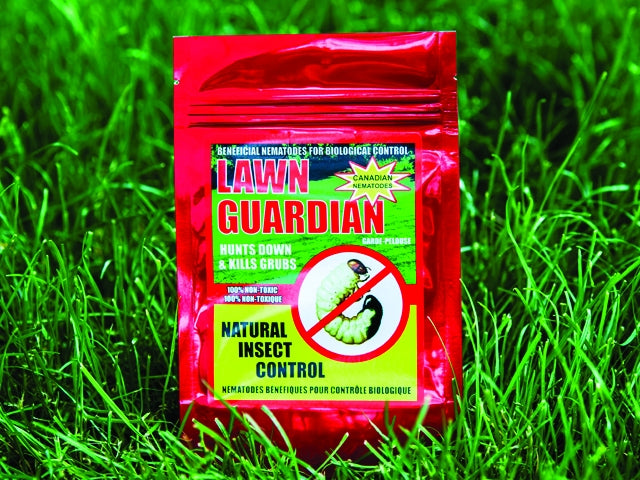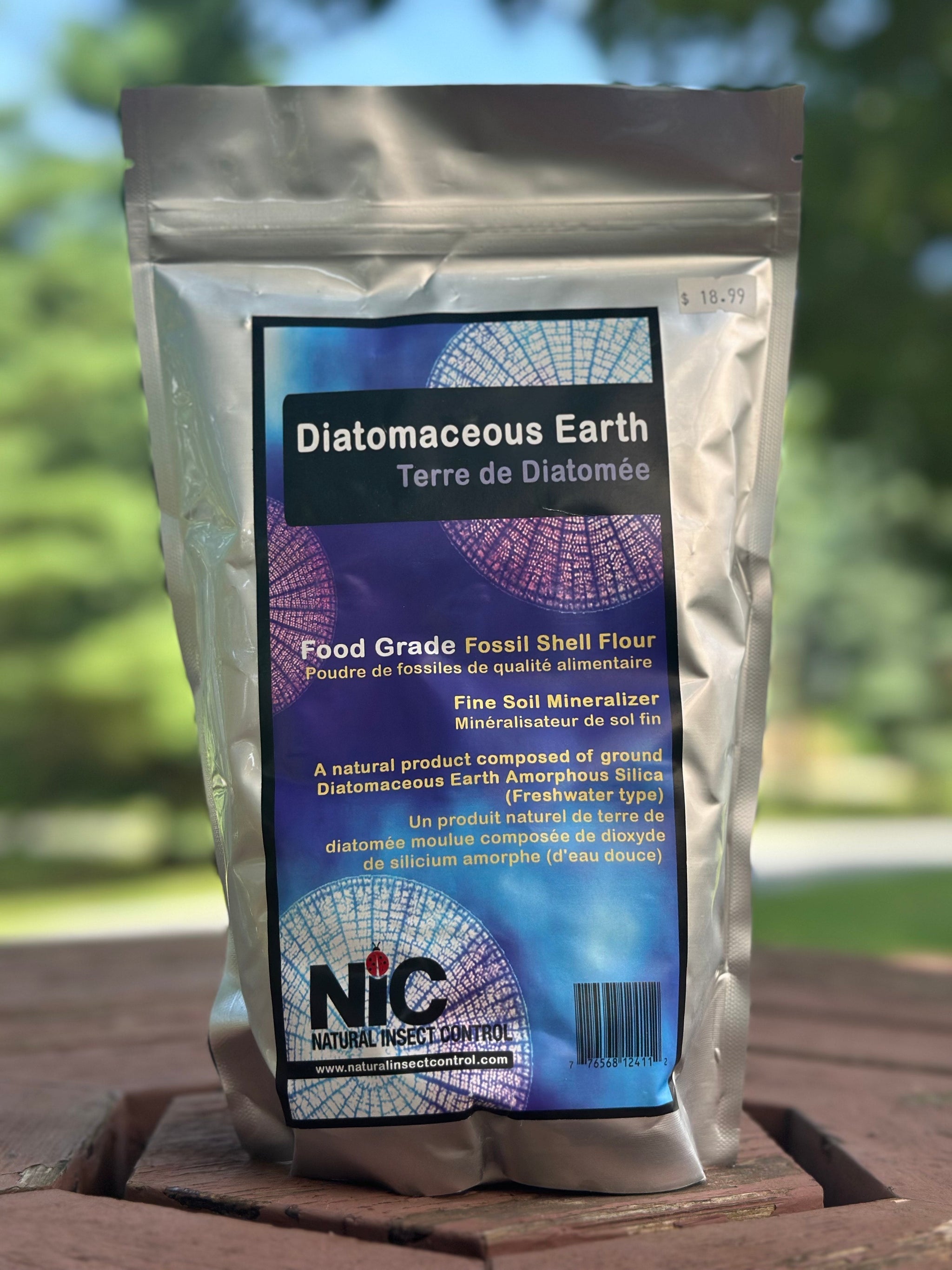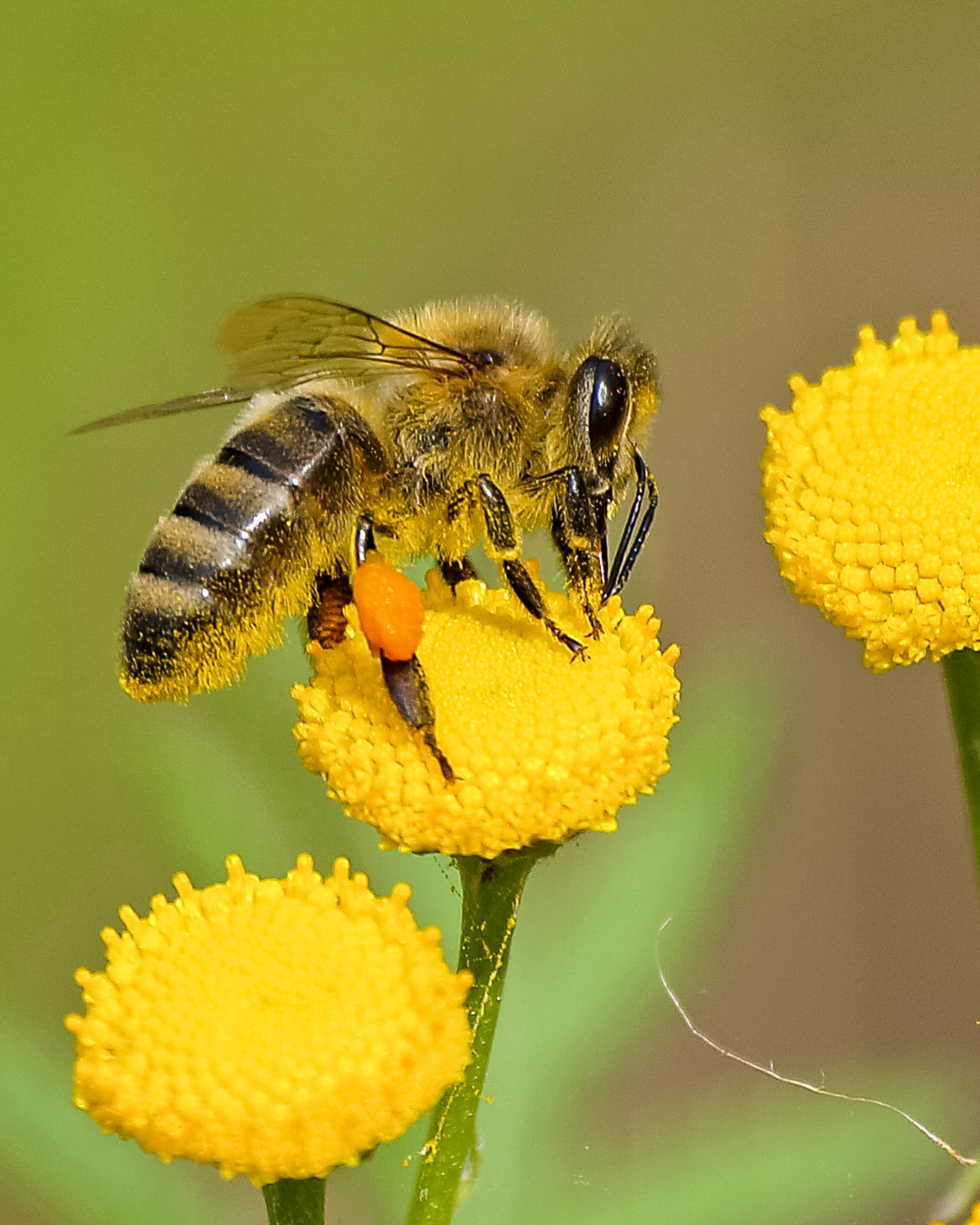
Do you have problems with Japanese beetles defoliating the foliage in your flower and veggie gardens? In June you start to see ragged, skeletonized holes in foliage of everything from roses, to apple, crabapple trees, and raspberries. They are indiscriminate feeders and are known to attack almost 300 species of plants.
The Japanese beetle, as an adult is about 10 mm in length and has a shiny metallic green body and copper coloured wing covers.
Japanese beetles lay eggs in the soil in June / July, and these eggs develop into larvae which start feeding the roots of your lawn.
They can overwinter in the soil as larvae( grubs) for up to 10 months at which point they emerge to start feeding again. The best time to control Japanese beetle is to go after them at the ‘grub’ stage. If you have dead patches of grass in your lawn or you have dug up holes in the lawn, you most likely have these grubs. The digging is from the skunks which are trying to go after the grubs. Oh what a destructive pest this Japanese beetle is!
The BEST time to control this insect is to control the grubs. You apply nematodes to your lawn in the early spring, when soil temperatures have warmed to 10 degrees Celsius, before the larvae(grubs) emerge to start feeding and lay more eggs. Nematodes are a beneficial microscopic worm that enters the grub and attacks if from the inside out. Nematodes must be delivered via suspension, that is, watered in your lawn in order to find and go after the larvae( grubs). Lawn Guardian is an easy to use product that contains 10 million active native Canadian beneficial nematodes. Nematodes are safe for people to use, they are safe for plants, they are just not safe for larvae of many types of insects such as Japanese beetles, rose chafers and June bugs.
The Lawn Guardian product arrives in a bag containing a sponge with a brownish paste, these are the nematodes. You must prepare a concentrate of nematodes in water and add that concentrate to the hose end sprayer applicator to ‘water’ the nematodes into the lawn. Nematodes must be stored in the refrigerator when not in use. The best time to apply Lawn Guardian is when the lawn has been watered well and you are expecting a rain. You see the nematodes need the moisture in order to deliver them into the soil to reach the grubs.
How to prepare a concentrate of nematodes:
- remove the sponge from the package
- have a bucket ready with approximately 4 litres ( 1 gallon) of water.
- gently squeeze the sponge to release the nematodes and stir constantly. Nematodes are heavier than water and will sink to the bottom so to have an even suspension you need to stir.
- pour the contents of your concentrate into the hose end sprayer applicator to fill. You will have enough concentrate for subsequent applications in this round.
- turn on the hose and start watering your lawn .Take your time, and water heavily , again to ensure that the nematodes are getting down in to the soil to the depth of the grubs.
- Start at one end of the lawn, and linger longer over those dead patches of grass where the infestation is worse.
- When the hose end sprayer is empty, add more concentrate and repeat.
- One package of Lawn guardian should treat approximately 2000 – 3000 sq ft (185-279 m2).
- Again, the best time to apply is when the soil temps have reached 10 degrees Celsius and right before a rain, as Mother Nature can help you deliver those nematodes right to their target. Based on this spring in our area, you should be aiming for a late April / early May application.


